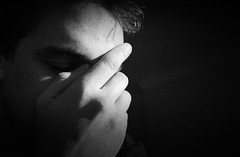 A study shows that children who receive harsh physical punishment are at an increased risk of mental disorders. This includes physical punishment that is not considered to be abuse by some. Parents who want to avoid the risk of their child developing a mental illness should select punishment that is not physical in nature.
A study shows that children who receive harsh physical punishment are at an increased risk of mental disorders. This includes physical punishment that is not considered to be abuse by some. Parents who want to avoid the risk of their child developing a mental illness should select punishment that is not physical in nature.
How do you discipline your child? Some parents believe that it is acceptable to use physical punishment on their children. Others select more effective, and less harsh, means of discipline, such as a “time out”. A “time out” can be effective, when done correctly, with younger children. Older children and teens may respond more to a punishment that involves a temporary loss of privileges.
A study that was published in “Pediatrics” finds that harsh physical punishment increased the risk of mental disorders. This is true even if the punishment wasn’t something that a reasonable person would consider to be abusive. One cannot assume that all people who have a mental illness were abused, or all received physical punishment as children. However, those that did experience it are at a higher risk of developing a mental illness.
The study focused on five forms of physical punishment: pushing, grabbing, shoving, slapping, and hitting. They specifically looked at instances where these types of punishment were used in absence of more severe acts of physical abuse or neglect (such as punching, burning, or sexual abuse).
Researchers analyzed data from over 20,000 people in the United States who were age 20 or older. Out of this group, 1,258 reported that they experienced pushing, grabbing, shoving, slapping, and hitting “sometimes or very often” when they were children. A total of 19,349 in the study said that they experienced those things “rarely” or “never”.
The researchers adjusted the results for gender, race, marital status, education, and a history of family dysfunction. They also noted if the parents of the people in the study had drug problems or if they were hospitalized for mental illness.
Overall, the results showed that the people who experienced physical forms of punishment when they were children were more likely to express “nearly every type of mental illness examined”. This group had a risk that was 1.5 times greater for developing mood disorders, depression, and mania than those who were not slapped, pushed, grabbed, shoved, or hit as children. The risk of depression, and the risk for anxiety, was 1.4 times higher.
The group who experienced physical punishment also were 1.6 times more likely to abuse alcohol later in life and 1.5 times more likely to abuse drugs. This should give parents something to consider before they choose to use a form of physical punishment.
Image by Lloyd Morgan on Flickr

